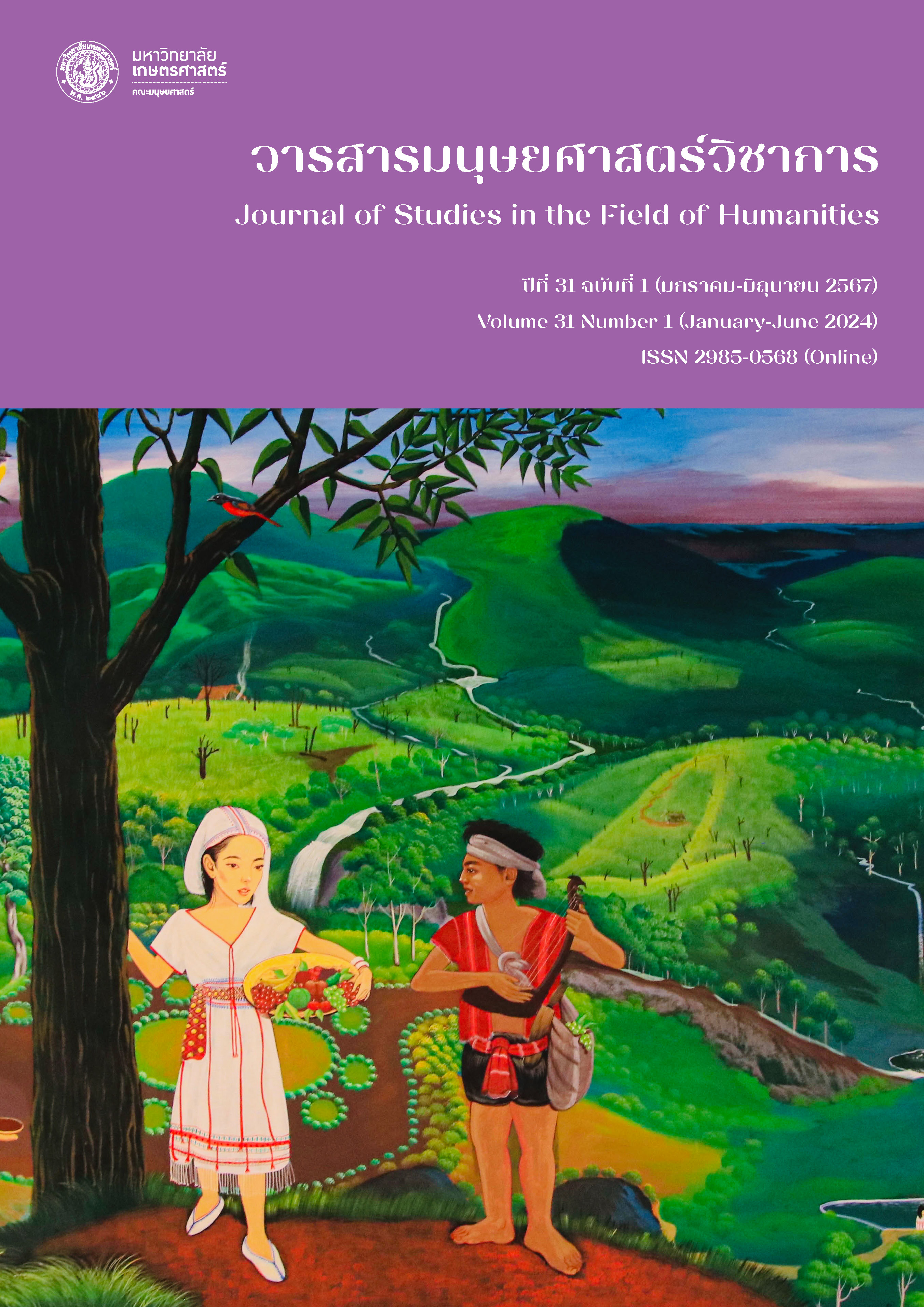The Development of Lexical Database from Maritime Transportation Corpus Based on An Ontology Approach
Main Article Content
Abstract
This paper aims to present a method for analyzing data about maritime transportation to develop lexical database based on an ontology approach. The method of this research started by selecting 1,286 words from electronic and printed documents related to maritime transportation. The methodology runs by three linguistic processes. The first process is compound noun and noun phrase analysis based on the data from the vocabulary list. The second process is keywords analysis that linked terms in the context with semantic relationship. The last process is data linking to create ontology by using hierarchical concept relations. The results of data analysis found that there are eight conceptual categories, including cargoes, containers, cranes, vessels, ports, documents, routes and organizations related to maritime transportation. In the category of vision, the maritime transportation related “organizations,” found the most subconsciously with 19 sub-concepts, and the category of “containers” had the least number of subconsciously with two sub-concepts out of 605 sub-concepts. Finally, to create a maritime transportation ontology, it was found that up to six hierarchies of conceptual data could be linked.
Article Details

This work is licensed under a Creative Commons Attribution-NonCommercial-NoDerivatives 4.0 International License.
References
นววรรณ พันธุเมธา. (2559). ไวยากรณ์ไทย (พิมพ์ครั้งที่ 8). กรุงเทพฯ: โครงการเผยแพร่ผลงานวิชาการ คณะอักษรศาสตร์ จุฬาลงกรณ์มหาวิทยาลัย.
ปราณี กุลละวณิชย์. (2545). แบบลักษณ์ภาษา (พิมพ์ครั้งที่ 2). กรุงเทพฯ: โครงการเผยแพร่ผลงานวิชาการ คณะอักษรศาสตร์ จุฬาลงกรณ์มหาวิทยาลัย.
เพียรศิริ วงศ์วิภานนท์. (2545). เอกสารการสอนชุดวิชาภาษาไทย 3. นนทบุรี: มหาวิทยาลัยสุโขทัยธรรมาธิราช.
มาลี กาบมาลา, ลำปาง แม่นมาตย์, และครรชิต มาลัยวงศ์. (2549). ออนโทโลยี: แนวคิดการพัฒนา. บรรณารักษศาสตร์และสารนิเทศน์ศาสตร์ มข., 24(1-3), 24-49.
วรรษพร อารยะพันธ์, และพัฑรา พนมมิตร. (2562). การพัฒนาออนโทโลยีความรู้ด้านผ้าล้านนา. วารสารมนุษยศาสตร์สาร, 20(2), 133-170.
ศิริพร ปัญญาเมธีกุล. (2549). การศึกษาความหมาย. กรุงเทพฯ: มหาวิทยาลัยศรีนครินทรวิโรฒ.
สัญญา เคณาภูมิ. (2557). ปรัชญาการวิจัย: ปริมาณ คุณภาพ. วารสารรัฐศาสตร์และนิติศาสตร์ มหาวิทยาลัยราชภัฏกาฬสินธุ์, 3(2), 22-55.
สารานุกรมเสรี วิกิพีเดีย. (2565). ภววิทยา (วิทยาการสารสนเทศ). สืบค้นจาก https://th.wikipedia.org/wiki/ภววิทยา_(วิทยาการสารสนเทศ)#อ้างอิง.
อภิฤดี จันทะเดช, และมาลี กาบมาลา. (2561). การพัฒนาออนโทโลยีนิทานพื้นบ้านเพื่อการสืบค้นและเข้าถึง. วารสารศรีนครินทรวิโรฒวิจัยและพัฒนา, 10(20), 191-206.
Gruber, T. R. (1993). Toward principles for the design of ontologies used for knowledge sharing. International Journal Human-Computer Studies, 43(5-6), 907-928.
Kawtrakul, A., Suktarachan M., & Imsombut A. (2004). “Automatic Thai Ontology Construction and Maintenance System”, workshop on OntoLex (LREC Post-conference workshops), Bisbon, Portugal. 68-74.
Suktarachan, S., & Jukhamsri, P. (2018). Ontology construction from Thailand labor protection act. In Proceedings of the 10th international conference on management of digital ecosystems (pp. 47-54). New York: Association for Computing Machinery.
Thunkijjanukij, A., Kawtrakul, A., Panichsakpatana, S., & Veesommai, V. (2009). Ontology development: A case study for Thai rice. Kasetsart Journal: Natural Science, 43(3), 594-604.
Toulni, H., & Nsiri, B. (2015). A hybrid routing protocol for VANET using ontology. Procedia Computer Science, 73, 94-101.


